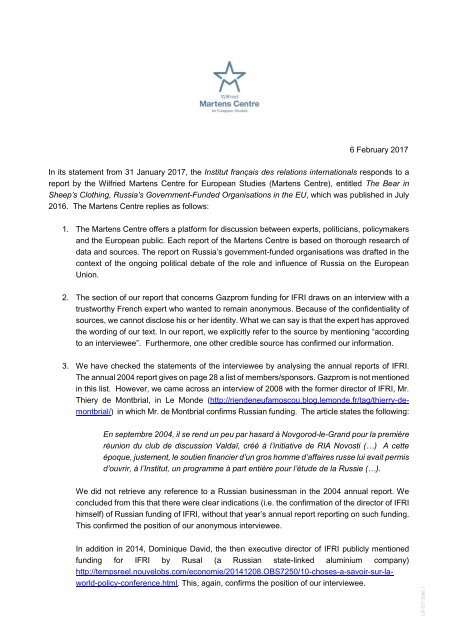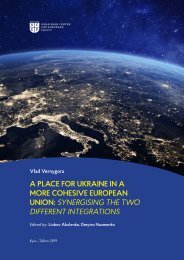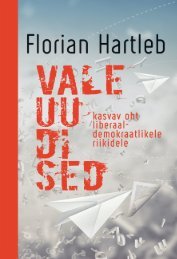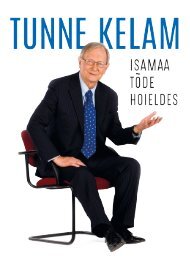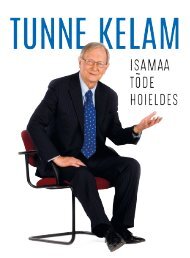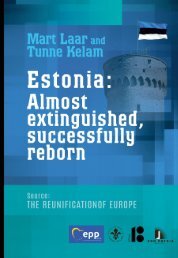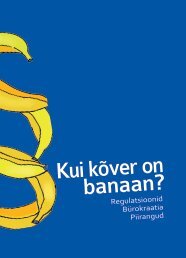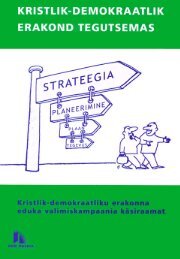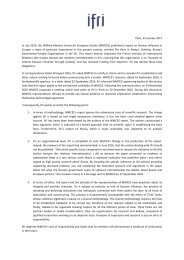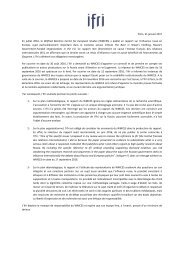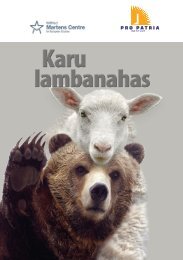wmces - Statement
In its statement from 31 January 2017, the Institut français des relations internationals responds to a report by the Wilfried Martens Centre for European Studies (Martens Centre), entitled The Bear in Sheep’s Clothing, Russia’s Government-Funded Organisations in the EU, which was published in July 2016.
In its statement from 31 January 2017, the Institut français des relations internationals responds to a report by the Wilfried Martens Centre for European Studies (Martens Centre), entitled The Bear in Sheep’s Clothing, Russia’s Government-Funded Organisations in the EU, which was published in July 2016.
You also want an ePaper? Increase the reach of your titles
YUMPU automatically turns print PDFs into web optimized ePapers that Google loves.
6 February 2017<br />
In its statement from 31 January 2017, the Institut français des relations internationals responds to a<br />
report by the Wilfried Martens Centre for European Studies (Martens Centre), entitled The Bear in<br />
Sheep’s Clothing, Russia’s Government-Funded Organisations in the EU, which was published in July<br />
2016. The Martens Centre replies as follows:<br />
1. The Martens Centre offers a platform for discussion between experts, politicians, policymakers<br />
and the European public. Each report of the Martens Centre is based on thorough research of<br />
data and sources. The report on Russia’s government-funded organisations was drafted in the<br />
context of the ongoing political debate of the role and influence of Russia on the European<br />
Union.<br />
2. The section of our report that concerns Gazprom funding for IFRI draws on an interview with a<br />
trustworthy French expert who wanted to remain anonymous. Because of the confidentiality of<br />
sources, we cannot disclose his or her identity. What we can say is that the expert has approved<br />
the wording of our text. In our report, we explicitly refer to the source by mentioning “according<br />
to an interviewee”. Furthermore, one other credible source has confirmed our information.<br />
3. We have checked the statements of the interviewee by analysing the annual reports of IFRI.<br />
The annual 2004 report gives on page 28 a list of members/sponsors. Gazprom is not mentioned<br />
in this list. However, we came across an interview of 2008 with the former director of IFRI, Mr.<br />
Thiery de Montbrial, in Le Monde (http://riendeneufamoscou.blog.lemonde.fr/tag/thierry-demontbrial/)<br />
in which Mr. de Montbrial confirms Russian funding. The article states the following:<br />
En septembre 2004, il se rend un peu par hasard à Novgorod-le-Grand pour la première<br />
réunion du club de discussion Valdaï, créé à l’initiative de RIA Novosti (…) A cette<br />
époque, justement, le soutien financier d’un gros homme d’affaires russe lui avait permis<br />
d’ouvrir, à l’Institut, un programme à part entière pour l’étude de la Russie (…).<br />
We did not retrieve any reference to a Russian businessman in the 2004 annual report. We<br />
concluded from this that there were clear indications (i.e. the confirmation of the director of IFRI<br />
himself) of Russian funding of IFRI, without that year’s annual report reporting on such funding.<br />
This confirmed the position of our anonymous interviewee.<br />
In addition in 2014, Dominique David, the then executive director of IFRI publicly mentioned<br />
funding for IFRI by Rusal (a Russian state-linked aluminium company)<br />
http://tempsreel.nouvelobs.com/economie/20141208.OBS7250/10-choses-a-savoir-sur-laworld-policy-conference.html.<br />
This, again, confirms the position of our interviewee.<br />
CF-5773586.1
We found further support for the position of the interviewee in a newspaper article of “Libération”<br />
of 24 October 2014 (http://www.liberation.fr/france/2014/10/24/les-universitairescomplaisants_1129045).<br />
Therefore, we believe the Martens Centre has performed all reasonable efforts on verifying the<br />
information it received from its source.<br />
4. For the sake of completeness, we want to stress that the Martens Centre has expressed its<br />
opinion on the funding issue without in any way using defamatory language. To the contrary,<br />
the introductory paragraph of page 53 of our report clearly frames the Russian funding of<br />
European think tanks:<br />
Some EU-based think tanks have received financing from the Russian government or<br />
from Gazprom. These organizations do not necessarily promote the Russian<br />
government agenda in all of their activities, nor can it be said that all of their staff<br />
necessarily support these aims.<br />
2/2


